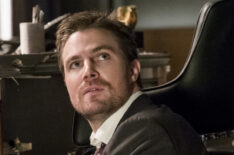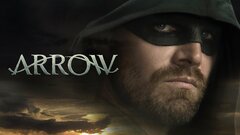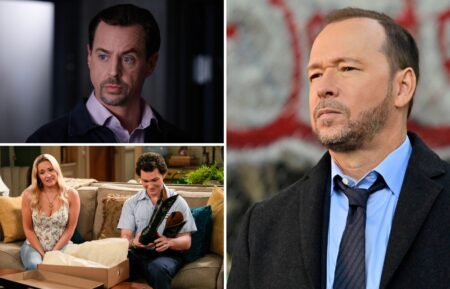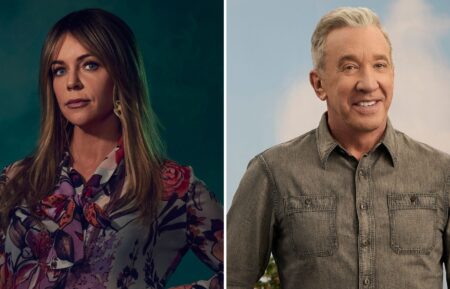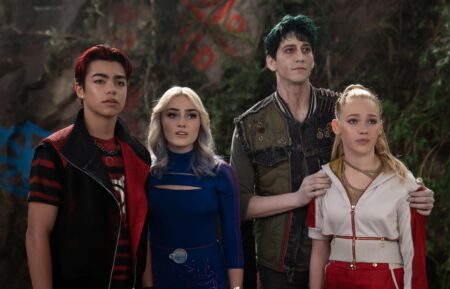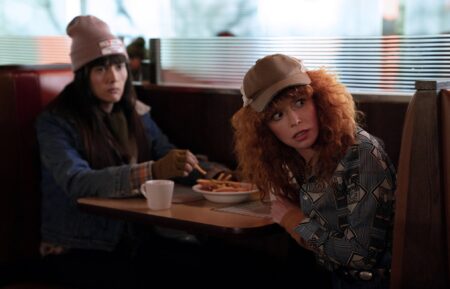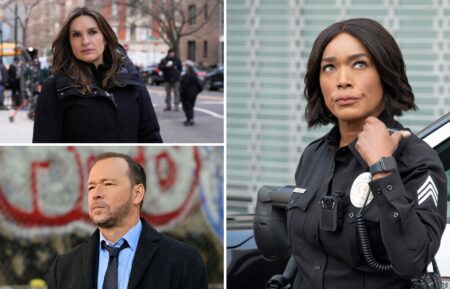‘Arrow’ Bosses Break Down ‘Spectre of the Gun’: Oliver’s Shining Moment, Wild Dog’s Past and More
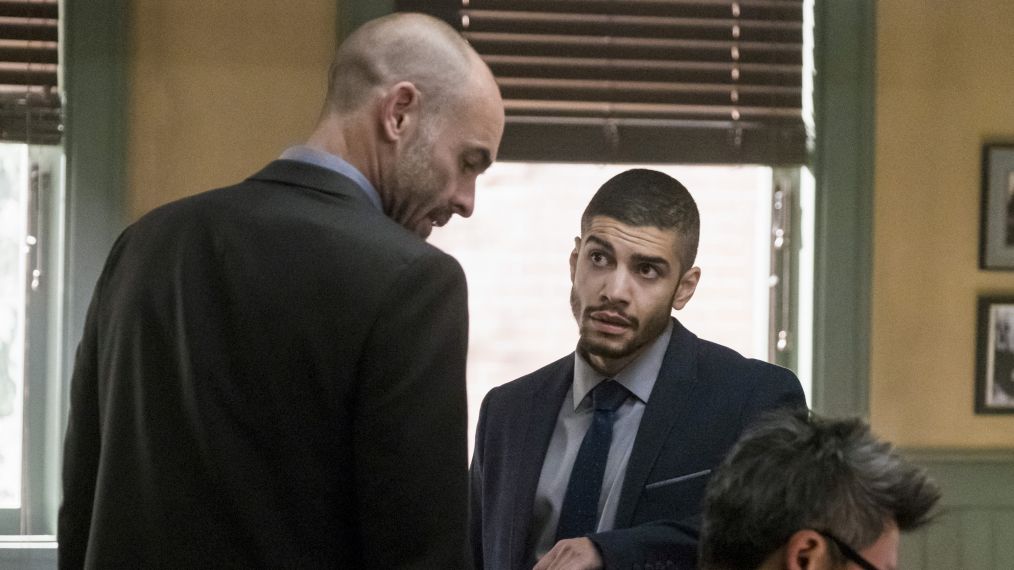
Spoiler Alert
Oliver Queen (Stephen Amell) saved the day in the “Spectre of the Gun” episode of Arrow…but it was as himself, versus his Green Arrow persona.
After a grieving man shot up City Hall to protest the lax gun laws—and the lack of a gun registry, which was blocked during the previous regime—he felt helped lead to the death of his family (who were gunned down in a separate massacre), Oliver was asked by the press to comment about his own beliefs on the touchy subject. Oliver realized his job as mayor put him in the position to actually enact change, so he set out to hammer out a new registry with the assistance of people who had conflicting viewpoints.
But with the gunman still on the loose, Oliver caught up with him before he could open fire at a hospital. There, Oliver spoke to him and was able to convince the man to surrender.
“I think Stephen’s performance in that moment is great; it’s a very powerful thing to see him talking a guy basically off a ledge,” executive producer Wendy Mericle told reporters. “From a story perspective, it was really the challenge of figuring out what would an episode look like where we had to solve the issue of the day or the problem of the week with Oliver Queen as mayor as opposed to him gearing up as the Green Arrow. The other thing when [executive producer] Marc [Guggenheim] and I talked about doing it, when we talk about doing potentially more episodes like this going forward—you know, still one serving of vegetables a season, but still—going forward to do it again is the idea that you want to start a conversation. Simply, it’s sort of what Curtis says in the episode, is it’s important to at least talk about this. At some point we did get away from that, I think, as a country, and we would like the idea of hearing both sides and hearing both sides as fairly as possible.”
Mericle and Guggenheim broke down the hour’s twists and turns, and teased what’s ahead.
Yes, the episode was impacted by the recent presidential election.
Guggenheim was in the middle of penning “Spectre of the Gun” when the election occurred, and it shifted what ended up on screen. “This was totally not by design, completely accidental, but I wrote the first half of the script before [the election],” he said. “I think, as you watch the episode—I write chronologically and linearly—and I think you can see that, in the second half, it’s about guns and gun violence, but it’s also about the state of discourse in our country.
“I’m an unapologetic progressive, but the thing that I’ve noticed is that not talking about issues serves a conservative agenda, not a liberal agenda,” he continued. “And I do agree with Curtis: I think the country is where it is right now because we stopped talking to each other.”
Felicity’s (Emily Bett Rickards) attempt to sustain peace within the team was a helpful writing tool, as well. “Certainly, Felicity being the one [saying], ‘Stop arguing about this,’ that came out in the writing,” Guggenheim said. “It’s funny; in the first half, before Trump was elected, it was me trying to keep the show from descending into this back and forth debate. So it was helpful as a writer to have a character go, ‘Stop debating!’ But then, once Trump got elected, I realized her saying ‘stop debating’ was speaking for another segment of the population, which is the segment of the population who considers talking about politics to be…something you’re not supposed to discuss in polite company. When did that happen?
“And yeah, the thesis statement of that scene she has with Curtis is the state of our country—whether you voted for Trump or not—I think maybe the only thing we can agree on as Americans is that the country is as fractured now as its ever been since the Civil War. And my point of view and suggestion as a writer is it happened because we all stopped talking to each other.”
But for those curious about what the exact legislation Oliver and his political team came up with, the show left that “intentionally vague,” Guggenheim said. “Very intentionally, we didn’t want to provide the answer to the audience to the problem of gun violence. We wanted to leave that open to the audience as almost like a Rorschach test. One of the goals obviously was to be—I’m sorry this phrase has been corrupted—to be as fair and balanced to the issue as possible. Once you put a fine point on, ‘Okay, this is what the regulations should be,’ then you sort of end up taking a side.”
How will Oliver’s journey in the hour impact him going forward?
Now that Oliver has helped put new gun regulations in place—and he’s struggled himself about whether killing is the right approach to take with opponents—”I think one of the things you’ll see in the second half of Season 5 is the gray area becomes a lot more gray,” Guggenheim said. “We’re really delving into the complexities of Oliver being a killer in a way that we’ve never done on the show before…in the past, it was like ‘I’m a killer or I’m not a killer.’ It was very binary. This year is…super gray, and it’s really messy, and this is a component of it. This is a piece of it for sure….One of the things we are doing in the back half of Season 5 is really getting underneath that and what that means, not just in terms of morality but in terms of psychology—specifically Oliver’s psychology. There’s things about Oliver’s killing that you have yet to learn.”
And Team Arrow will also go on a similar journey. “How do they square their own circles morally with the actions that they’ve taken?” Mericle questioned.
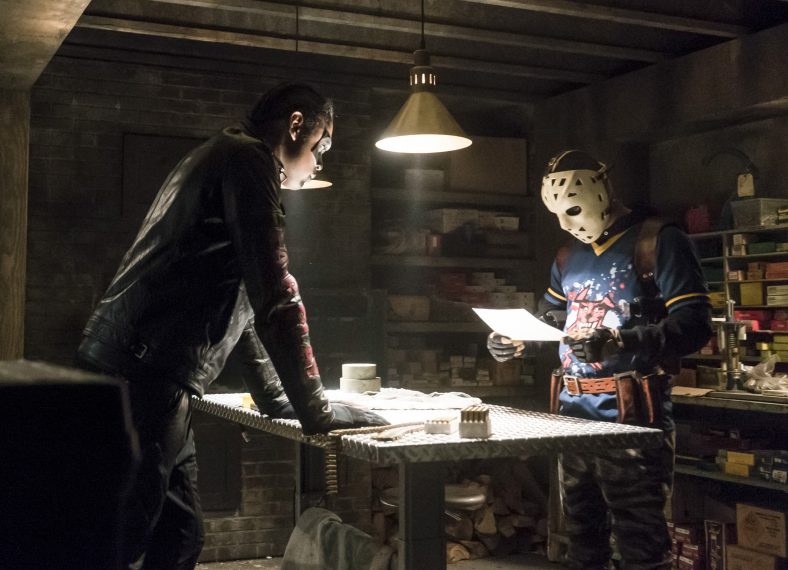
Teamwork.
Rene’s (Rick Gonzalez) background made him a natural to pair his backstory with the real-world issues.
“Spectre of the Gun” also shed some light on what Rene was up to before he became Wild Dog…when he was a married man, content to be with his wife and daughter. His wife was struggling with an addiction, and her dealer came to their home to get his payment. Rene attempted to get his gun to save his wife, but she was also killed in the struggle. “I think it was that he was someone whose background we really wanted to explore, and…he carries a gun, [so] he’s a natural spokesman for that point of view,” Mericle said.
Guggenheim added, “I think there was a real appetite for us and the writing staff to do flashbacks from the perspective of one of our recruits so that we were just getting to learn more about them. We know a lot about Curtis, obviously. Rory left the team in 12. Evelyn had betrayed the team…Rene felt like the right recruit at the right time for all the reasons Wendy was saying. He is a character whose whole super heroics revolve around guns.”
What’s next for Thea (Willa Holland)?
With Holland only contracted for 14 episodes this season, Thea was MIA on-screen. But with her return, “She’s headed in a direction that’s very similar to where her mother was before she was killed in Season 2,” Guggenheim previewed. “We’re excited about it; I’m actually really excited about her storyline because we’re taking her to a place where she’s been dealing with all of these issues the same way Oliver has, with her bloodlust and with her other elements of her past, and this season’s going to find her in a similar place but for very different reasons. There’s gonna be a great scene coming up between Oliver and Thea that’s one of my favorites on the show.”
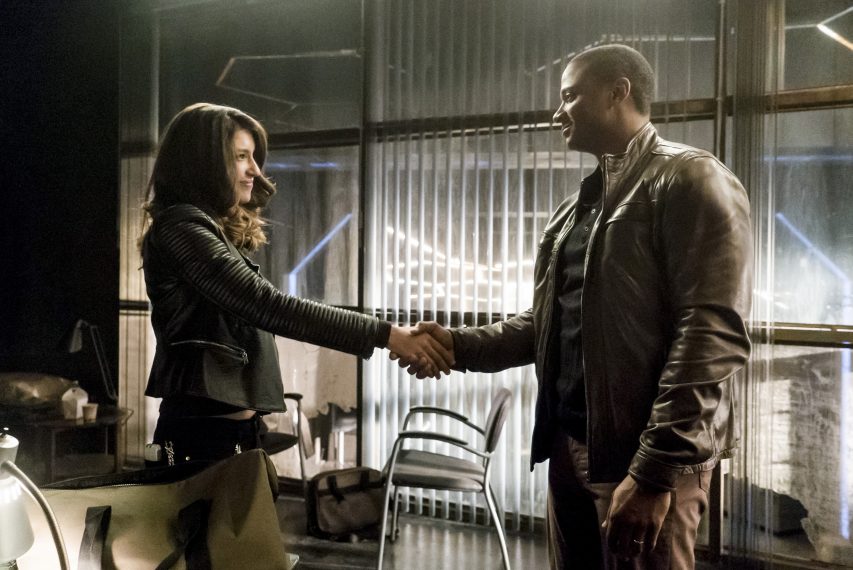
Dinah (Juliana Harkavy) and Diggle (David Ramsey) are bonding.
How does Dinah (Juliana Harkavy) fit in with Team Arrow?
Dinah took a big step forward, leasing her own studio and taking a job with the police force. “She comes to the team without the burden of having been trained by Oliver, and without the burden of dealing with all of Oliver’s secrets and, you know, in some cases, in previous seasons, lies and mishegoss,” Guggenheim said. “So she just has a nice clean perspective that isn’t so much about where she’s living as it is about, sort of what she’s been through, and her backstory. But her backstory also is not being someone who was a member of Team Arrow, who comes to the team without the baggage of the past four seasons.”
The next hour is a big one.
“For me, [Episode] 14 is this fulcrum where a lot of the little seeds that had been planted in the first half of the season start to come to fruition,” Guggenheim teased. “You start to realize that oh, Prometheus has been setting up a chess board and the episode ends, I think, with sort of the next key move in Prometheus’ grand plan.”
Thea will also give her brother a pep talk in the next episode. “Thea’s gonna make a good case to Oliver, of all people, for all the things he’s accomplished as mayor,” Guggenheim previewed. “You start to see like, oh wait, in the first 13 episodes, he actually kind of did some stuff. And he’s not done yet. But we definitely went into the season with the goal of showing that Oliver is actually much better at this job than you might expect.”
Arrow, Wednesdays, 8/7c, The CW

